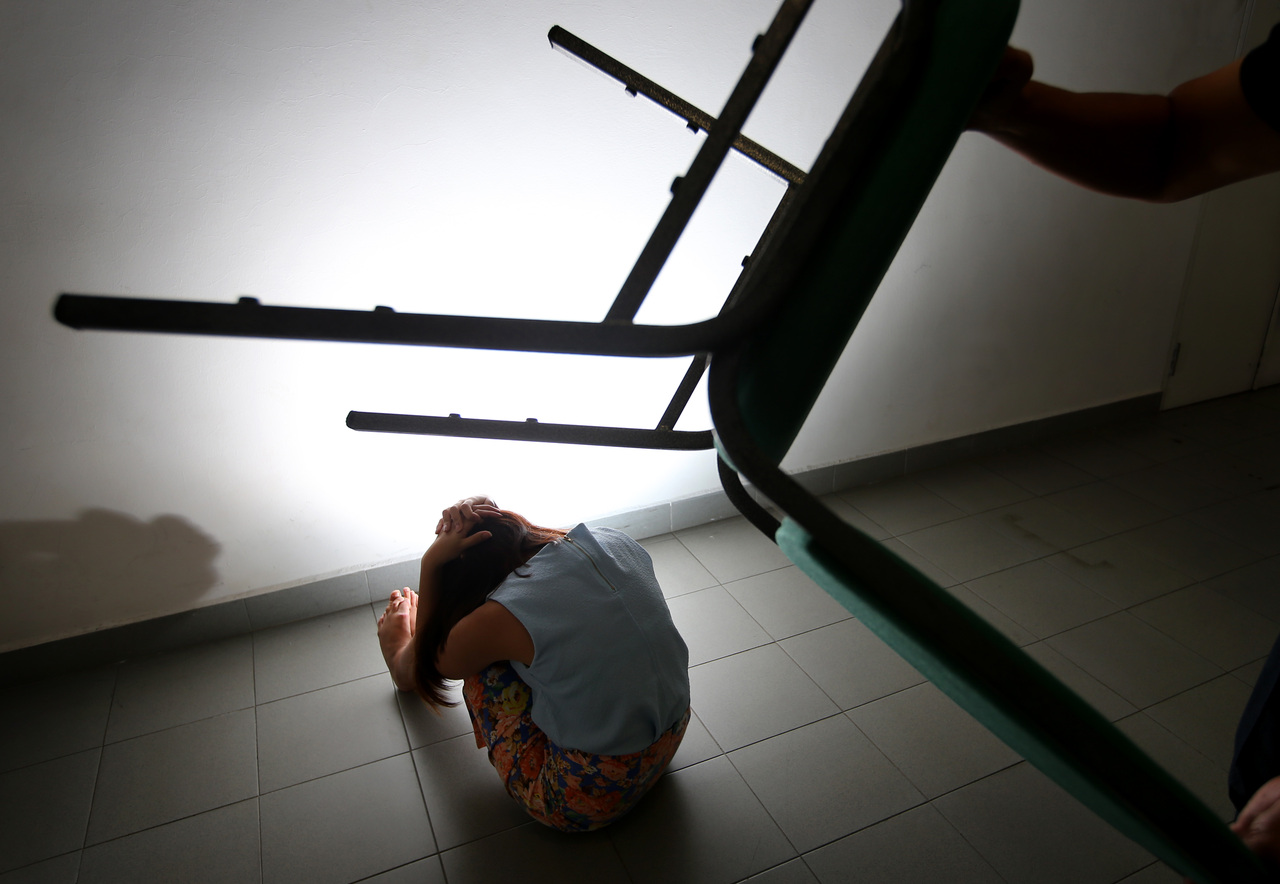Coronavirus: Rise in domestic abuse cases as families forced to stay home
Sign up now: Get ST's newsletters delivered to your inbox

A photo illustration of domestic abuse.
PHOTO: THE NEW PAPER
SINGAPORE (THE NEW PAPER) - Since she started telecommuting a few weeks ago, she has faced more verbal and physical abuse from her husband, who has always worked from home.
Friction between the couple has become worse now that they are together almost all the time, the woman's social worker, Ms Kristine Lam, told The New Paper.
One of the flashpoints is her husband's harsh disciplining of their two young children, who stopped going to kindergarten a while ago because of the Covid-19 outbreak.
When she tries to help them, he would turn his anger towards her and become violent.
"Her husband would accuse her of being a lousy mother who was incapable of managing the kids," said Ms Lam, who declined to reveal their personal details due to confidentiality.
"He would push her and bang her head against the wall. He also hit her with his hands."
She said the man had always been abusive and controlling, such as checking his wife's phone and laptop, but the frequency of his violence rose after she began working at home.
Ms Lam, a lead social worker at Care Corner's Project StART, and advocacy groups are concerned about a potential rise in domestic abuse as families are forced to stay home during this circuit breaker month.
Minister for Social and Family Development Desmond Lee addressed this issue in Parliament on Monday (April 6) when he noted a trend in "higher rates of domestic violence, domestic quarrels and friction in the family" in countries that had imposed movement restrictions.
He said a national care hotline will be set up for callers to get support from psychologists, counsellors and others.
Family Violence Specialist Centres (FVSC) and Child Protection Specialist Centres will be "adequately resourced during this time" as they are essential services, Mr Lee added.
The Association of Women for Action and Research (Aware) said it received 619 inquiries last month, a 35 per cent jump from March last year.
Aware's head of research and advocacy Shailey Hingorani told TNP: "Crises, such as pandemics or economic recessions, have historically corresponded with a surge in domestic violence cases."
She said social workers told Aware last month that they had observed a rise in family violence cases.
One social worker said 60 per cent of her daily referrals were family violence-related, up from 30 per cent last year.
United Women Singapore president Georgette Tan said such cases may continue to rise as virus containment measures may inadvertently trigger domestic violence.
HARDER TO GET HELP
Nanyang Technological University's associate professor of psychology, Dr Andy Ho, noted that physical isolation also makes it harder for victims to get help.
He said: "Victims are now constantly in close physical proximity with their abusers. This exposes them to a higher likelihood of abuse.
"And they might not have the privacy and personal space to contact their support network for help even if they have one."
Stress arising from the Covid-19 crisis may also result in more abusive behaviour by perpetrators, said Ms Hingorani of Aware.
She added: "Abusers may seek a sense of control in their disrupted and uncertain lives, which may trigger them to lash out at those around them."
Ms Lam, whose centre is one of two FVSCs here, said she has seen a recurrence of violence in cases involving those who were previously on stay-home notices or quarantine orders.
Like NTU's Dr Ho, she feels that victims are now more isolated from their support networks. For example, school counsellors and teachers can no longer monitor how potential child abuse victims are doing now that they are not in school.
Work-from-home arrangements may also impact victims' level of empowerment as many find their identity through their jobs, and this could affect whether they seek help, said Ms Lam.
Stressing that physical isolation does not mean social isolation, Dr Ho said: "It is crucial for victims to have a contact point that checks in on them. Technology makes that possible, but only if they can have privacy or time alone."


